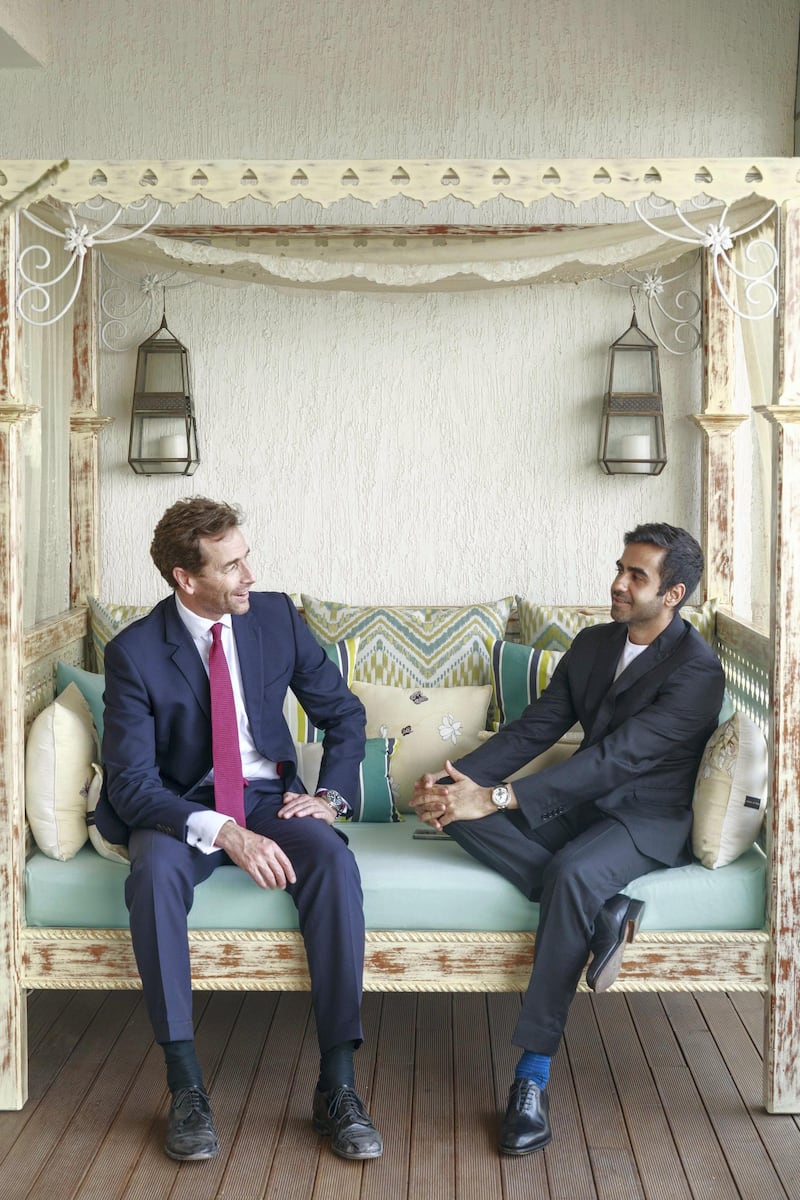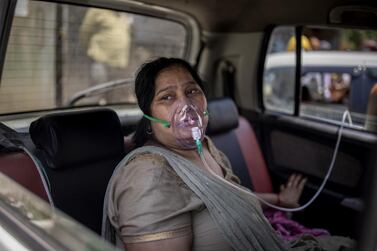A leading FinTech entrepreneur who splits his time between India, the UAE and the UK has described the rigours of running his business in a pandemic.
Richard Pattle, who worked as a royal aide to Prince Charles before striking out with a FinTech in India, has spent two lockdowns in the south-east Asian country during the coronavirus outbreak while also jetting between his company's base in Bangalore, London where his family live, and Dubai, where he is a resident.
The chief executive and co-founder of True Beacon, a low-fee asset manager for ultra-high-net-worth investors he set up with Nikhil Kamath in November 2019, said India's surging Covid-19 cases caught the nation by surprise and came about after politicians, business owners and residents grew complacent about the disease after emerging from the first wave relatively unscathed.
"Looking back, we were all very complacent," Mr Pattle, 52, told The National from Dubai, where he had arrived on a direct Emirates A380 flight from London for a business trip.
“Social distancing was always going to be more challenging in a country that's very populous, like India, but all of us were not strict enough and that was driven by the belief – which was obviously, very much mistaken – that there was some sort of inherent immunity or protection afforded to India, with its people having low-lying immunity.”
Mr Pattle said the ferocity of the second wave and the speed at which it engulfed the country "took everyone by surprise" with the real challenge being how the country improves its vaccination rate until there is sufficient immunity among its population of nearly 1.4 billion.
“This is one of the biggest factors we should all worry about, not just for India but also for other countries lagging behind percentage vaccination rates,” Mr Pattle said.
India, home to the world’s largest vaccine manufacturer the Serum Institute, has administered more than 160 million vaccine doses so far, with the AstraZeneca shot, produced as Covishield, the drug mainly provided.
However, with cases ramping up to more than 300,000 a day, only 30 million people have had two doses of a Covid vaccine so far, according to government data, equivalent to slightly more than 2 per cent of the population.
“India is an enormous vaccine-producing country, but it's found itself unable to get the type of momentum that you need to reach critical mass very quickly," Mr Pattle said.
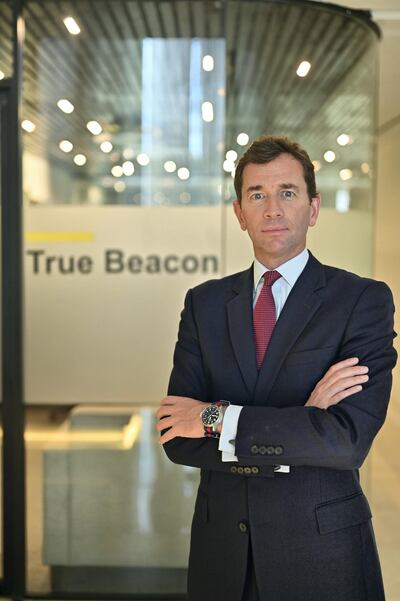
While most of the world imposed strict movement restrictions to curb the spread of the virus, Mr Pattle said life in India returned to normal within a few months of the start of the pandemic.
“Many offices around the world have been closed on a permanent basis since the beginning of this crisis but that's not been the same in India, which may of course be a contributory factor to what's happening right now,” he said.
The country also had systemic issues before the pandemic started, he said, such as relatively weak health infrastructure, which left it vulnerable when the number of cases shot up last month.
Along with the low vaccination rate, complacency and the rise of large religious and political gatherings helped to fuel “a perfect storm for the second wave”.
Despite the seriousness of the surge in cases, Mr Pattle, who has received the first dose of the Covishield vaccine in India, is planning to return to Bangalore shortly, where he spends most of the year.
When he is in the country he lives in the five-star Oberoi Bengaluru, a luxury hotel in which he was stuck during the first lockdown at the start of the pandemic when flights out of the country were grounded.
“I'm ashamed to say that I had one of the best lockdowns because I was trapped at the Oberoi, which is a magnificent hotel right in the centre of Bangalore, with 162 bedrooms,” he said.
“There were three guests, and I was one of them, for about five months. They looked after me so well that that’s where I live on a full-time basis now.”
The luxury residence seems fitting for Mr Pattle, whose career has taken him from Britain’s Royal Air Force to working for the royal family and then into financial services for the world’s wealthy.
He started out as a pilot in the RAF, with his 18-year military career taking him to Iraq, Northern Ireland and the Balkans.
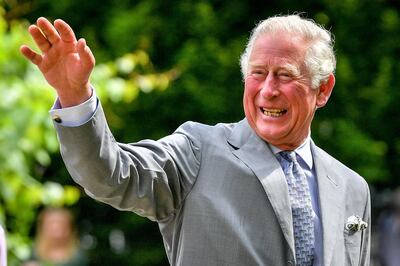
He later worked as equerry for Prince Charles and the Duchess of Cornwall for two years from 2004 before rejoining the British royals in 2008, working as the prince’s master of the household from 2008 until 2014, managing domestic and global operations.
From there he enjoyed a stint as vice chairman of Standard Chartered Private Bank in 2014, overseeing about 250 wealthy families globally on philanthropy and co-investment, before becoming chief executive of UAE-based KEF Holdings.
The Kamath brothers then appointed him as senior adviser of the FinTech unicorn Zerodha, a Bangalore-based retail banking brokerage with more than three million users, which trades about 15 per cent of the country’s public market, worth $10 billion on a daily basis.
Mr Kamath, a seasoned trader, investor and entrepreneur teamed up with Mr Pattle to set up True Beacon in late 2019, a zero-fee asset manager that only charges its wealthy clients a fee on profit made.
Working in India was nothing new for Mr Pattle, who was based in Tamil Nadu with his wife and three children during his RAF days on a one-year exchange posting with the Indian Armed Forces.
But flying across the globe to help promote True Beacon to foreign investors has been more of a challenge during the crisis because of restrictions on travel.
After spending the first lockdown in India last year, he spent a couple of months in the UK with his wife, a doctor in London, and two daughters who attend boarding school, as well as a stint in the US to see his son who studies there.
However, he was unable to return to the UK for Christmas when the number of infections were on the rise and had to remain in India until April, despite his job normally requiring him to traverse the globe to help attract foreign investment.
The entrepreneur said he would now see “for his own eyes” the scale of India's crisis when he returns to the country after a month away.
“When I left India at the start of April, this was pretty much breaking news but I have heard through my friends and work colleagues it is very serious,” he said.
“There have been these hotspots around the world during the pandemic but I wouldn't be flying back if I thought there was a significant chance of taking up a hospital bed that could go to somebody else."
With a skeleton crew working at our Head Office and the rest of us working remotely, we as an organization, are taking all necessary precautions to stop the spread of COVID. We hope and pray that all of you and your families are safe. 🙏🏼 pic.twitter.com/M0Xg2hUo9z
— TrueBeacon (@TrueBeaconIN) April 29, 2021
The 25 staff at True Beacon have been working from home since April, with a third of the team suffering Covid symptoms, but Mr Pattle hopes the staff can return to the office once the healthcare situation improves.
However, he said the crisis has done little to dent investor appetite for India, as most adopt a medium to long-term approach.
“As much as it's incredibly painful for India reputationally right now, as it has been to other countries that have been caught up in the eye of the storm as it's moved around the globe, this will pass."
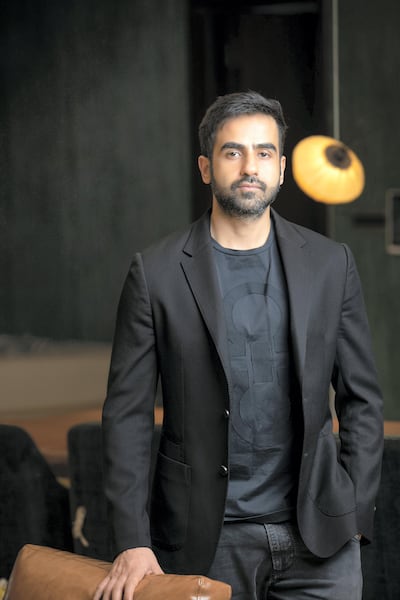
Co-founder Mr Kamath said the appetite for True Beacon’s offering has risen through the pandemic because people have had time to spend online, discovering new ways of investing.
“Discounting the fact that the virus will wreak havoc for a certain amount of time, looking beyond the coronavirus phase, India is a large opportunity and continues to be one of the most interesting places in which to invest money," Mr Kamath said.
The company has received up to $2bn every week over the last month from foreign investors for equities alone, despite the escalating situation in India.
More on FinTech
Darktrace soars on London stock market debut as UK set for record IPO year
UK’s banking revolution offers insights for UAE’s digital lenders
FinTech matchmaker: TISAtech recruits UAE start-ups looking to expand to Britain
